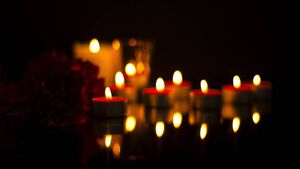Living Greener: We have lost our way in caring for elderly

Today, death — like birth or food or education or anything else in our culture — has become an industry
MY uncle and his wife died recently, within two weeks of each other, and I was pleased to see that they died surrounded by family.
Too often these days, Irish elders live surrounded by strangers, or are put into homes to be “cared for” by people who care nothing for them.
Ireland today has become like most modern countries; the aged are no longer valued, their experiences ignored. It’s impossible to exaggerate what monsters we would seem to any of our ancestors.
For ten thousand generations our forebears dealt with life and death every day; they hunted and fished, cared for the animals they would one day slaughter, defended their families with violence and buried their own dead.
Unlike any other animal, we know we will die, and every culture had its own intimate spiritual rituals for it.
“Death is frightening for the unprepared,” Mary Fogarty’s grandmother told her in the , “but our religion teaches us how to live and die.” At the end of this month will be All Hallow’s Eve, the night when the veil between the living and the dead is at its thinnest.
On Ash Wednesday, the priest rubs ashes into our heads to reminds us, “Remember, man, that you are dust, and into dust you shall return” – not as a morbid preoccupation, but as a way – the way – to make us truly live.
Today, we can afford to hide death as we once hid sex, but at the cost of maturity. Without it we hurtle towards our end unprepared.
“As my father drove to town in the pony and trap, he would tip his cap and make the sign of the cross as he passed particular gateways and old houses,” Ann Gardinier remembered in The House Remembers. “(and) launch into reminiscences about neighbours who had passed away.”
“My father felt a closeness to nature with a full acceptance of its laws and the laws of God,” Alice Taylor said in . “Years afterward, when he was a very old man, visiting him I would ask, ‘How are you?’ and he would smile serenely and say, ‘Waiting.’"
Today, death — like birth or food or education or anything else in our culture — has become an industry, an inconvenience we outsource to government agencies or corporations. For thousands of years, though, Irish people knew the elderly in their villages.
They saw them every day, heard their stories, sang next to them in church, footed turf with them, sowed fields together.
“The old were never alone as the neighbours joined hands around them and the young, too, were included in the circle,” Taylor said.
When elders grew close to death, friends and neighbours from all around came to visit, people who might have explored birds’ nests together, helped foot the turf, accepted each other’s cheques when the banks closed.
People depended on each other, so a death meant a library of memories gone, a gap in the voices of the choir, an empty pew in church, a vacant seat at the pub. Only in our modern world do so many people die alone and unremembered.
Their last days were a vigil of daughters and sons and sisters, people who shared most of the same daily memories for decades, their souls intertwined into a single living thing with a memory centuries old.
Together they had delivered, nursed, healed and buried many relatives before them, their joys heightened because they were shared, their grief lessened because they were shared.
As death drew nearer the family gathered around the dying in their small rooms, just as the Irish had for thousands of years.
They said the rosary together, prayer after prayer. And sometimes a swelling rose inside them, like a wind filling sails, and their gathered bodies became its instruments, and they lifted their voices together in song.
This weekend, we will gather to remember my aunt and uncle with a proper wake. We will gather in their name, pray, sing, tell stories and laugh, and embrace their deaths without modern embarrassment.
I’ve heard it said that death is like being carried sleeping to your bedroom as a child, and you can still hear the laughter in the next room. I know that my aunt and uncle will be with us, and will be able to hear ours.





